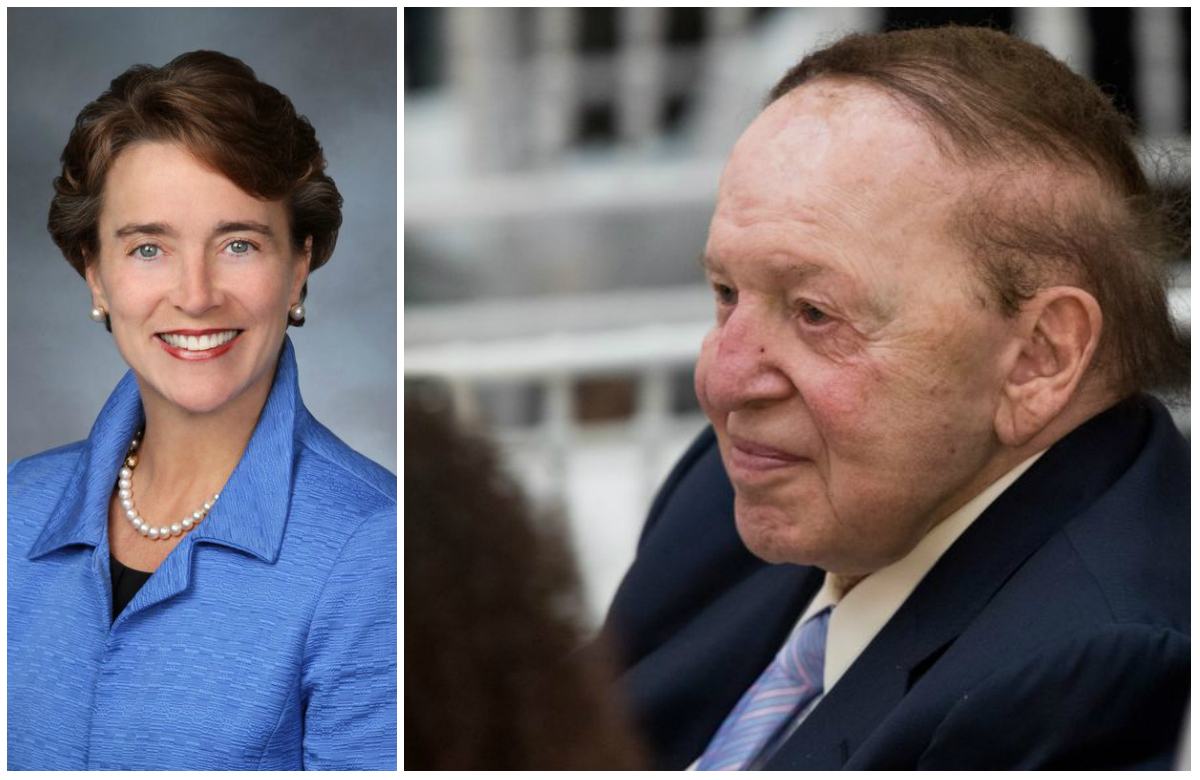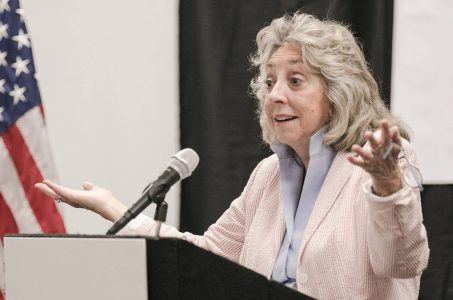Anti-Online Gambling Op-Ed Penned by Ex-Pol Lobbyist Whose Firm Has Sheldon Adelson as a Client
Posted on: August 22, 2018, 04:00h.
Last updated on: August 22, 2018, 03:36h.
Former congresswoman Blanche Lincoln (D), who represented Arkansas in both the US House of Representatives and the Senate, is calling on the Department of Justice (DOJ) to overturn a 2011 opinion on the 1961 Wire Act that paved the way for the state-by-state online gambling in America.

It was seven years ago that DOJ Assistant Attorney General Virginia Seitz — appointed by then-President Barack Obama — responded to an inquiry from the Illinois and New York lotteries seeking clarification on whether they could sell lotto tickets online. In her opinion, Seitz said the 1961 Wire Act applied specifically to sports betting, and not all forms of gambling.
Before that 2011 landmark decision, the Wire Act was assumed to include the prohibition of all forms of wire communications for the transmission of any betting-related contest, even though it obviously came into being many decades before the internet was a thing.
That decision not only defied decades of legal precedent and circumvented Congress, it deprived minors and addicts of protection from the industry’s predatory practices. A single opinion emerged as the entire legal basis behind the expansion of US online gambling,” Lincoln penned in a subscriber-only op-ed for London’s Financial Times earlier this week.
In 2013, Nevada, New Jersey, and Delaware all legalized forms of online gambling following the DOJ reversal. Pennsylvania passed its own legislation last October, and operations are expected to begin there in the coming months.
Adelson Sways Lincoln
Saying it’s his moral obligation to do so, Las Vegas Sands billionaire Sheldon Adelson embarked on a crusade to convince the DOJ to reverse the 2011 Wire Act opinion after states began legalizing operations. Adelson’s famous quip regarding online gambling came in a 2013 Forbes op-ed that began, “Click your mouse and lose your house.”
Adelson used his political donations to persuade Sen. Lindsey Graham (R-South Carolina) and former Rep. Jason Chaffetz (R-Utah) into pushing legislation (known as the Restoration of America’s Wire Act/RAWA) that would restore the Wire Act to its pre-2011 interpretation. The federal bills didn’t attract much support in Congress.
Lincoln, a Democrat, seems to support Adelson, as well as Graham and Chaffetz’s belief, that online gambling sites can’t be properly regulated and monitored. She’s points to UK sites as an example in her FT recent Op-Ed.
Given the industry’s relentless marketing schemes, it is no surprise that the UK’s gambling regulator found in 2017 that around 370,000 children and young people were gambling every week,” the former senator wrote. “The DOJ can prevent America’s kids from visiting online casinos … by revisiting its 2011 opinion as soon as possible.”
After being voted out of Congress, Blanche started a lobbying group in DC called the Lincoln Policy Group. Finance records show that Adelson’s Las Vegas Sands is a good client, and has been billed by Lincoln Policy for $760,000 over the last four years.
States’ Rights Prevailing
Former Congressman and presidential candidate Ron Paul (R) has a much different view. He believes online gambling is a power that should be reserved to the states.
“Online gambling has no impact on other states. Technology prevents residents from restrictive states … from gambling on the sites of more permissive states like New Jersey, yet members of Congress have repeatedly set out to dictate how states can govern,” Paul wrote in January.
US Attorney General Jeff Sessions (R) was asked by Graham during his confirmation hearing in the US Senate Judiciary Committee about the 2011 opinion. He answered that he would be willing to review the matter.
To date, the DOJ has taken no action towards reverting the 2011 opinion on the original Wire Act.
Related News Articles
Pennsylvania Online Gambling Market to Launch Before Year’s End
Most Popular
LOST VEGAS: ‘Tony The Ant’ Spilotro’s Circus Circus Gift Shop
Las Vegas Overstated F1 Race’s Vegas Impact — Report
Mega Millions Reportedly Mulling Substantial Ticket Price Increase
NoMad Hotel to Check Out of Park MGM on Las Vegas Strip
Most Commented
-
End of the Line for Las Vegas Monorail
— April 5, 2024 — 90 Comments -
Mega Millions Reportedly Mulling Substantial Ticket Price Increase
— April 16, 2024 — 8 Comments -
Long Island Casino Opponents Love New York Licensing Delays
— March 27, 2024 — 5 Comments
















No comments yet